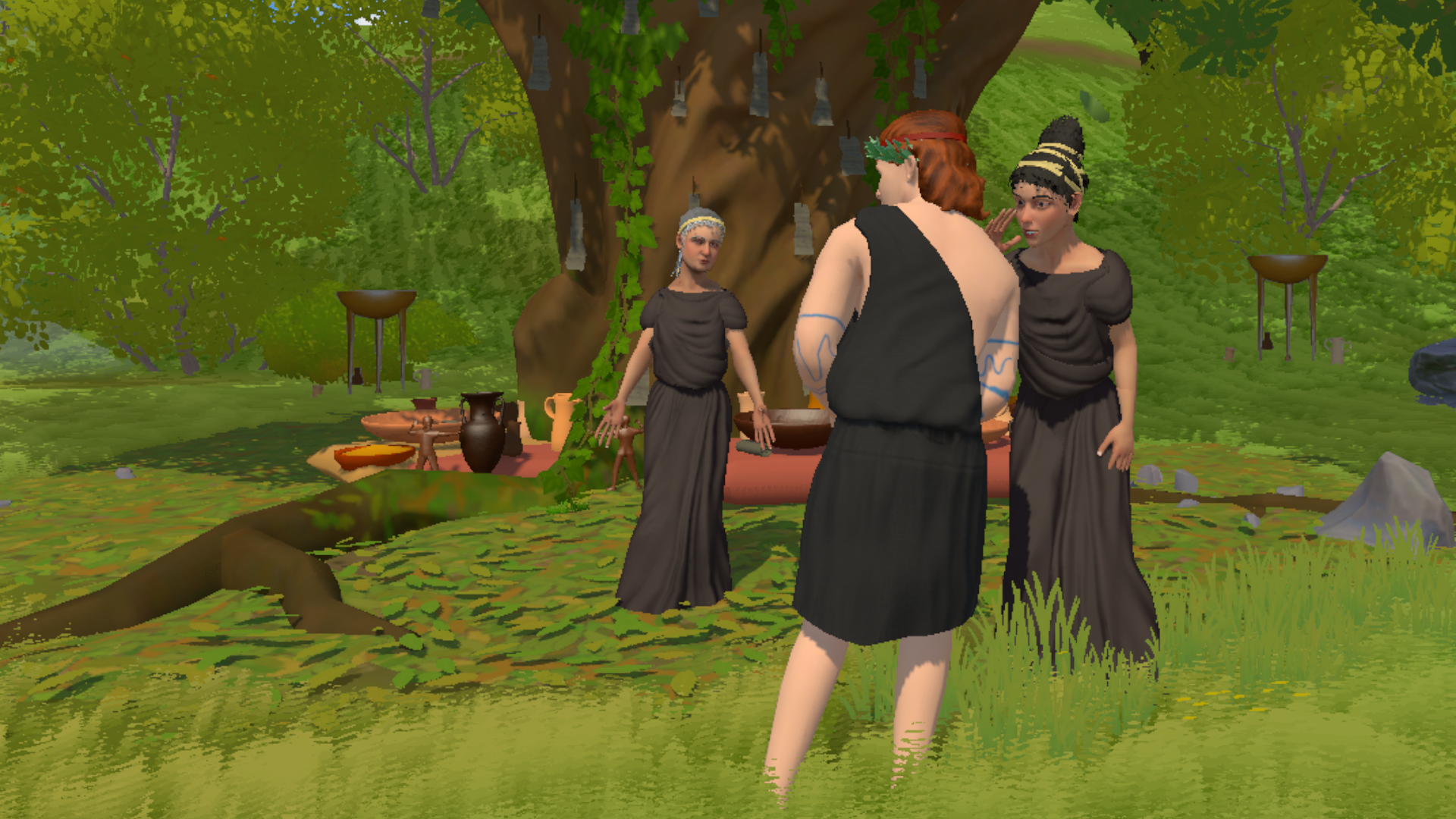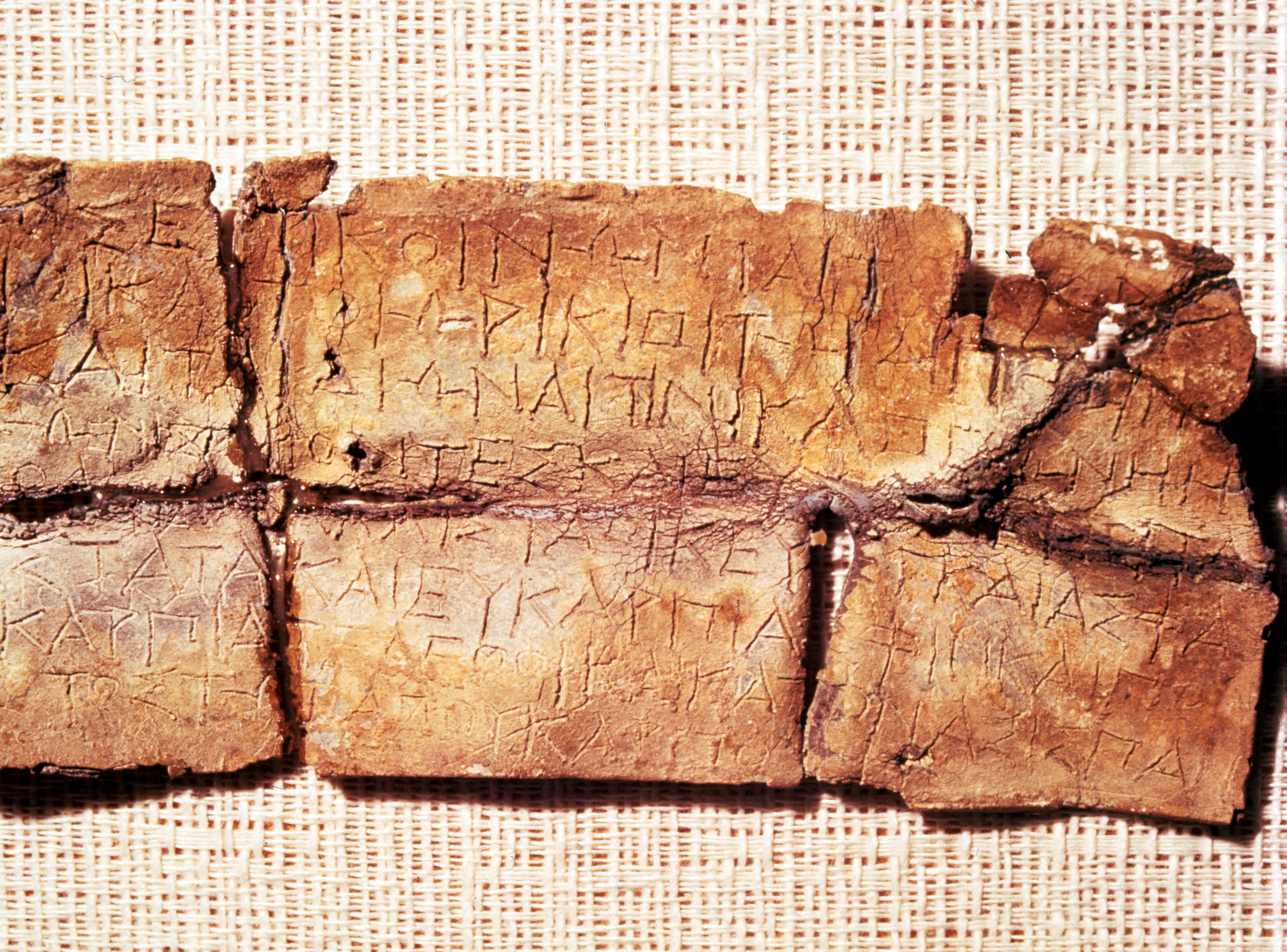Historical Resources
The Ritual of Oracular Consultation at Dodona

The process of the ritual of oracular consultation at Dodona is mysterious. Different sources draw attention to different aspects of the site to explain how it worked—the tree, the priestesses, the tripods. Some scholarship focuses on one aspect; other scholars have suggested that all the elements were involved. For example, Sarah Iles Johnston has argued that ‘we can reasonably well bring together four elements of Dodonian prophecy that are mentioned in literary sources (dove priestesses, doves, cauldrons, and oak tree) under a single model centering on sounds that were interpreted by women, while in an altered state of consciousness.’
Oddly, very few literary sources mention one aspect of the process for which we do have evidence. These are the thousands of lead tablets on which pilgrims to the sanctuary wrote their questions to Zeus: most were small strips of lead and many were reused. The tablets and their questions reveal the many different people who undertook the journey to ask for Zeus’ guidance throughout Dodona’s long history, ranging from city state representatives to enslaved people, and including both men and women.

Credit: CM Dixon/Heritage Images.
To begin with, pilgrims address their questions to Zeus; after the fourth century BCE, they invoke both Zeus and Dione. The questions were usually structured in three ways: they either offered an alternative (‘shall I do x or y?’) or a yes/no format (‘shall I do x or not?) or they asked which god or hero the consultant should pray to. Consultants did not ask the gods for a definite response; they inquired about ‘what would be better and more good’ for them to do. Most questions seem to have looked to the future, focusing on themes such as travel, work, marriage and childbirth, as well as health, politics and general prosperity. Some questions were about the past, for example about crimes, or inquired about hidden matters in the present. Some were very specific, while others indicated only what the consultant was thinking about.
We know very little about how the questions were used in a consultation. Consultants may have written their questions in advance of the consultation. The tablets may then have been collected by sanctuary officials, who took them to the priestesses; or perhaps consultants kept their tablets, for use in the consultation, before dedicating them to the god. Alternatively, consultants may have written down their questions at the end of their consultation, as proof of communication with Zeus, and then dedicated their tablets to the gods in thanks.
There are some exceptional tablets that seem to contain examples of written responses: some offer a single word; others provide more detailed information.
Recent scholarship has explored the role of oracular consultation in the lived experience of ancient Greek people. Even if we do not know how they were used, the question tablets from Dodona offer insights into the everyday concerns of ancient life, and when and how ancient Greek men and women felt they needed the support of the gods.
References
- Eidinow, E. 2007. Oracles, Curses, and Risk Among the Ancient Greeks. Oxford: Oxford University Press.
- Johnston, S.I. 2008. Ancient Greek Divination. Malden, Ma: Wiley-Blackwell.
- Piccinini, J. 2013. ‘Beyond Prophecy: The Oracular Tablets of Dodona as Memories of Consultation’. Incidenza dell'Antico, 11, 63-76.